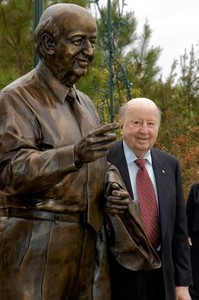(p. A23) Surveys and interviews give us some sense of what’s going on. Voters have a lot of economic anxieties. But they also have a template in their heads for what economic dynamism looks like.
That template does not include a big role for government. Polls show that faith in government is near all-time lows. In a Gallup survey, voters listed dysfunctional government as the nation’s No. 1 problem. In fact, American voters’ traditional distrust has morphed and hardened. They used to think it was bloated and ineffective. Now they think it is bloated and ineffective and rigged to help those who need it least.
When many of these voters think of economic dynamism, they think of places like Texas, the top job producer in the nation over the past decade, and, especially, places like Houston, a low-regulation, low-cost-of-living place. In places like Wisconsin, voters in the middle class private sector support candidates who cut state pensions and pass right-to-work laws, so that economic governance can be more Texas-style.
For the full commentary, see:
David Brooks. “The Field Is Flat.” The New York Times (Fri., MARCH 27, 2015): A23.


